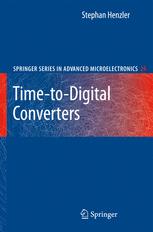

Most ebook files are in PDF format, so you can easily read them using various software such as Foxit Reader or directly on the Google Chrome browser.
Some ebook files are released by publishers in other formats such as .awz, .mobi, .epub, .fb2, etc. You may need to install specific software to read these formats on mobile/PC, such as Calibre.
Please read the tutorial at this link: https://ebookbell.com/faq
We offer FREE conversion to the popular formats you request; however, this may take some time. Therefore, right after payment, please email us, and we will try to provide the service as quickly as possible.
For some exceptional file formats or broken links (if any), please refrain from opening any disputes. Instead, email us first, and we will try to assist within a maximum of 6 hours.
EbookBell Team

4.8
94 reviewsWith ongoing technology scaling high resolution in the voltage domain becomes increasingly troublesome. Time domain resolution, however, is continuously improving as digital circuits become faster in each new technology generation. Time-to-Digital Converters describes the fundamentals of time-to-digital converters (TDC) based on analog and digital conversion principles. An in depth theoretical investigation is provided with respect to quantization, linearity, noise, and variability. Advanced TDC architectures are described that address the challenges of signed time interval measurement, long measurement time, high resolution, high linearity, low-power, variability and calibration, low mismatch among multiple measurements, and suitability for design automation. Resolution enhancement techniques such as pulse-shrinking, Vernier delay-line, local passive interpolation, gated delay-lines, and time amplification are introduced and discussed with respect to operating principle, resolution, power, area, conversion time, susceptibility to variations, and suitability for implementation and mass production. Finally, an overview on TDC applications in phase-locked-loops and analog-to-digital converters is given. Time-to-Digital Converters provides a strong theoretical basis and comprises a unique in depth overview on TDC architectures and conversion principles.